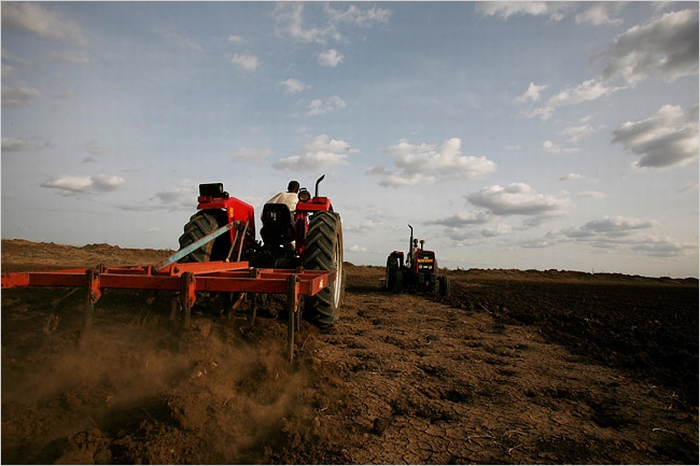By Yara Bayoumy
KHARTOUM (Reuters) -- Agricultural investment in Sudan by Arab countries looking to guarantee supplies of staples such as wheat for their people will account for up to 50 percent of all investment in the country from 2010, a state official said.
Countries in the dry Gulf Arab region as well as Asia that are heavily dependent on food imports have turned their sights to land investments in many African nations to grow food for their own populations.
Saudi Arabia, Qatar, Egypt, Libya, Syria and Jordan have invested heavily in Sudan for their food security needs since the largest African country enjoys a variable climate and heavy rainfall making it fit for growing wheat, citruses, animal feed and oilseeds.
"Agriculture investment in 2007 represented only 3 percent of all investment in Sudan. Now it's much higher, it is 17 percent and it is rising," Abdul Rahim Ali Hamad, State Minister at Sudan's Agriculture Ministry told Reuters on Sunday.
Hamad said that 2008-2009 were mostly "preparatory years", during which investors were still studying opportunities and conducting studies.
"So we expect from 2010 onwards a dramatic increase in agricultural investment. We expect that it will increase to up to 50 percent related to all investment in Sudan," Hamad said.
He said these capital investments were worth some $700 million in 2007 and have risen to $3 billion in 2009.
"In terms of area, in 2010 I expect that 5 million feddans (5.19 billion acres) will be used for investment in Sudan, which is about $7.5 billion worth of agricultural investment in 2010-2011 by Arab countries," said Hamad.
AU CRITICISM
Sudan gives investors considerable incentives in those farmland deals such as allowing input materials to be obtained from outside the country, and they can also reinvest their funds in whatever way they want, Hamad said.
But the African Union has criticised what many Africans have coined as "land-grabbing", saying Africa is giving vast areas of farmland to rich nations without ensuring those on the world's hungriest continent reap any benefit.
Hamad said these investments, which are based on leasing and not buying, have not been "misused" at the expense of Sudan's 40 million people, many of whom live in poverty and are caught in between conflicts such as Darfur.
"What is available to export in any project is not more than 70 percent, and 30 percent is used in the domestic market. That is enough for us in terms of numbers," he said.
"We sign deals with non-Sudanese investments... in a way which assures that the Sudanese citizen in benefitting from them."
Hamad said Sudan needs 2.3 million tonnes of wheat per year and that from next season, which starts in the last week of June, the country would aim to plant 1.5 million feddans (1.557 bln acres) to produce 1.7 million tonnes of wheat.
"Our plan is to cover all our wheat needs by 2011. And if there is any increase in invested land, it will of course also cover our wheat needs," he said.











